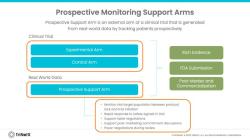What are the job requirements for a CNA?
A Certified Nursing Assistant (CNA) is a vital part of the healthcare team, providing direct care to patients in various healthcare settings. The specific job requirements for a CNA may vary by state and employer, but here are the typical qualifications and responsibilities:
Job Requirements/Qualifications:
Education and Training:
- High School Diploma or equivalent (often required).
- Completion of a state-approved CNA training program, which usually lasts several weeks to a few months. The program includes both classroom instruction and clinical training.
Certification:
- Successful completion of a state competency exam is required to become a Certified Nursing Assistant. The exam typically includes a written test and a skills evaluation.
State Licensure:
- After passing the competency exam, CNAs must be listed on their state's Nurse Aide Registry or Licensing Authority to legally work as a CNA.
Physical Fitness:
- CNAs should be physically fit, as the job often requires lifting and moving patients, as well as standing for long periods.
Background Check:
- Many healthcare facilities require a criminal background check before hiring CNAs, as they will have access to vulnerable populations.
Health Screenings:
- CNAs may need to undergo health screenings, including immunization checks and tuberculosis (TB) tests, to ensure they are free from communicable diseases.
Responsibilities:
The responsibilities of a CNA can vary depending on the healthcare setting, but typically include:
Assisting with Activities of Daily Living (ADLs):
- Help patients with tasks such as bathing, dressing, grooming, and toileting.
Vital Sign Monitoring:
- Measure and record patients' vital signs, including blood pressure, pulse, temperature, and respiration.
Mobility Assistance:
- Assist patients with walking, transferring in and out of bed or chairs, and repositioning to prevent pressure sores.
Meal Assistance:
- Help patients with eating, including feeding those who are unable to feed themselves.
Medication Management:
- Under the supervision of a nurse, CNAs may assist in administering medications to patients.
Reporting and Documentation:
- Document patient care activities, changes in patient conditions, and any other relevant information for healthcare providers.
Providing Emotional Support:
- Offer emotional support and companionship to patients, especially those who may be lonely or anxious.
Safety and Infection Control:
- Follow proper safety and infection control protocols to ensure a safe and clean environment for patients.
Communication:
- Communicate with nurses and other healthcare team members to provide updates on patient status.
Patient Education:
- Educate patients and their families on self-care and recovery strategies.
Observation and Reporting:
- Observe patients' physical and emotional conditions, report any changes, and respond to emergencies.
Respecting Patient Rights:
- Respect patients' rights to privacy, confidentiality, and informed consent.
CNAs work in various healthcare settings, including hospitals, nursing homes, assisted living facilities, and home healthcare. The job can be physically and emotionally demanding, but it is a critical role in providing quality patient care and ensuring the well-being of individuals in need of assistance.
CNA Job Requirements: Qualifications and Skills for Certified Nursing Assistants
To become a certified nursing assistant (CNA), you must meet certain qualifications and skills. These requirements vary by state, but there are some general requirements that are common to all states.
Qualifications:
- You must be at least 18 years old.
- You must have a high school diploma or GED.
- You must pass a criminal background check.
- You must be physically and mentally able to perform the job duties of a CNA.
Skills:
- You must have good communication and interpersonal skills.
- You must be able to work well under pressure.
- You must be able to follow instructions carefully.
- You must be able to provide basic care to patients, such as bathing, dressing, and feeding.
- You must be able to take and record vital signs.
- You must be able to assist patients with mobility and activities of daily living.
The Role and Duties of a Certified Nursing Assistant (CNA)
CNAs play a vital role in the healthcare system. They work under the supervision of nurses and other healthcare professionals to provide basic care to patients in a variety of settings, including hospitals, nursing homes, assisted living facilities, and home healthcare.
Some of the specific duties of a CNA may include:
- Bathing, dressing, and grooming patients
- Feeding and assisting patients with eating
- Taking and recording vital signs
- Assisting patients with mobility and activities of daily living
- Collecting and testing urine and stool samples
- Administering oral medications
- Providing wound care
- Reporting changes in a patient's condition to a nurse or other healthcare professional
Educational and Licensing Requirements for CNAs
In order to become a CNA, you must complete a state-approved CNA training program. These programs typically last 4-8 weeks and cover topics such as basic patient care, infection control, and medical terminology.
Once you have completed a CNA training program, you must pass a state-approved CNA exam. This exam tests your knowledge and skills as a CNA. If you pass the exam, you will be licensed as a CNA in your state.
Job Outlook and Career Opportunities in CNA Positions
The job outlook for CNAs is good. The US Bureau of Labor Statistics projects that employment of CNAs is expected to grow 11% from 2020 to 2030, much faster than the average for all occupations. This growth is expected to be driven by the aging population and the increasing demand for long-term care services.
CNAs can work in a variety of settings, including hospitals, nursing homes, assisted living facilities, and home healthcare. They can also work in specialized settings, such as psychiatric hospitals and rehabilitation centers.
Supporting Quality Patient Care as a Certified Nursing Assistant
CNAs play an important role in supporting quality patient care. They provide essential services to patients and help them to maintain their independence and dignity.
CNAs can support quality patient care by:
- Providing personalized care to each patient
- Respecting the patient's privacy and confidentiality
- Keeping the patient's environment clean and safe
- Communicating effectively with the patient and their family
- Advocating for the patient's rights and needs
CNAs are essential members of the healthcare team and play a vital role in providing quality patient care.













